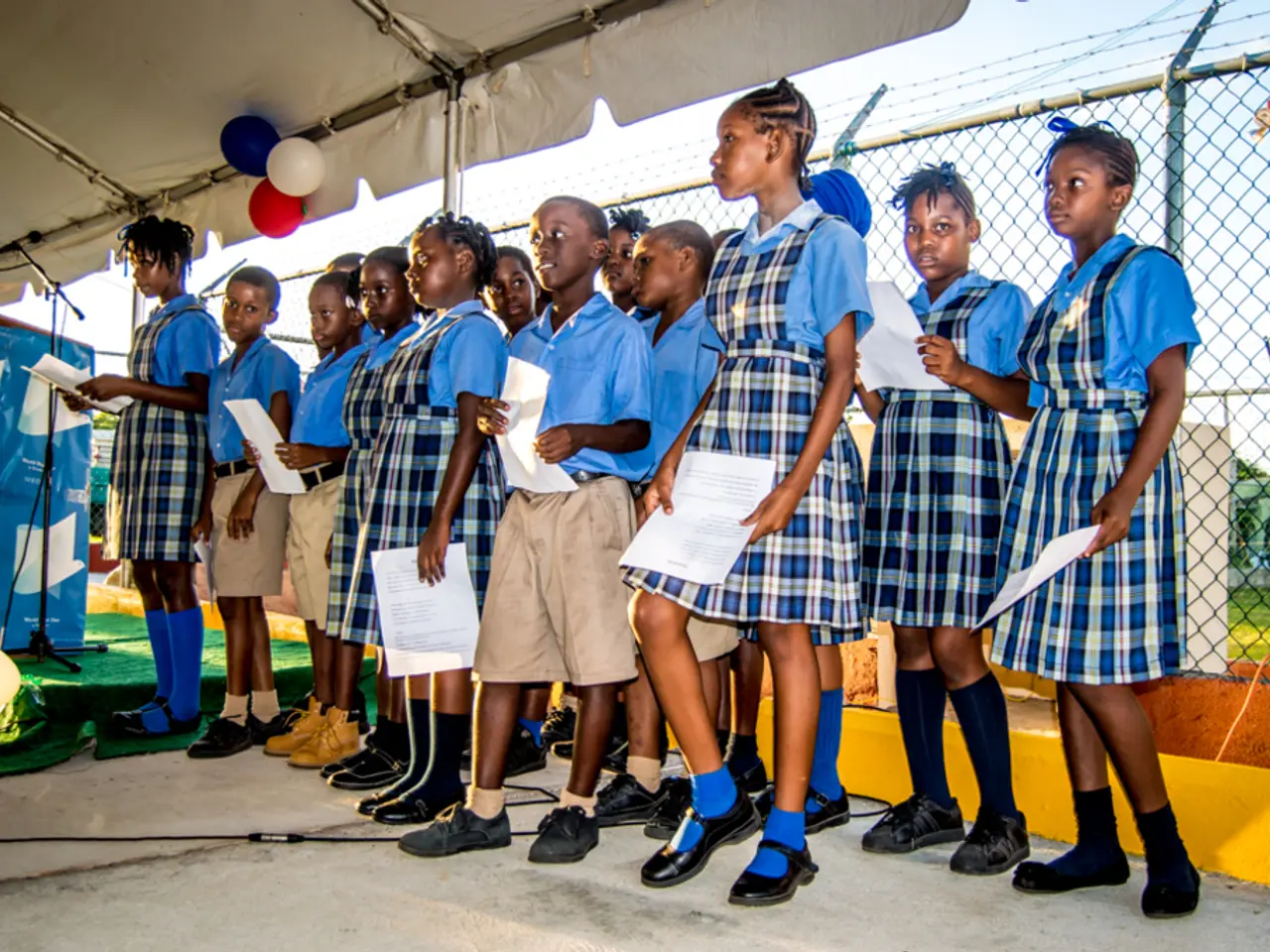Philly education officials and the teachers' union edge towards an agreement, but the unresolved Pennsylvania budget lingers as a concern
The Philadelphia Federation of Teachers (PFT) is negotiating a new contract with the School District of Philadelphia, demanding fair pay, smaller class sizes, improved working conditions, and changes to policies affecting sick leave and parental leave.
The union's demands focus on pay equity, staffing, working conditions, and fair policies. Specifically, the PFT is calling for an end to the current sick-leave policy requiring principal meetings after three absences, paid parental leave, penalty pay for teachers assigned oversized classes, restoration of school libraries, salary increases to address pay disparities, enhanced safety measures in schools, and addressing chronic understaffing and deteriorating building conditions.
If no contract is reached by August 31, shortly after the school year starts on August 25, a strike is authorized. This could disrupt education for nearly 200,000 students in Philadelphia. Working parents, particularly mothers, may face childcare challenges due to strike-related school closures.
The potential impacts on schools and students in Philadelphia, and by extension in nearby South Jersey and Delaware areas influenced by Philadelphia educator dynamics, are significant. Ongoing teacher shortages could worsen if local conditions and pay do not improve, with suburban schools attracting Philadelphia teachers. Students’ learning conditions are tied closely to teachers’ working conditions, so unresolved issues in staffing and school facilities directly affect student educational quality.
Budget constraints complicate negotiations. The Philadelphia School District faces a projected $306 million deficit for fiscal year 2026, struggles with chronic underfunding, and lacks local taxing authority. State funding remains uncertain, which impacts the district’s ability to meet union demands and may escalate strike risks.
In July, Parker's office reached a relatively quiet agreement with District Council 47, which represents white collar workers, but a contentious strike occurred with District Council 33, composed of more blue collar sanitation workers, 911 operators, and morgue workers. In June, 94% of PFT membership voted to authorize a strike.
The PFT represents 14,000 members, including teachers, counselors, nurses, office workers, and paraprofessionals. According to the PFT salary schedule for the 2024-25 school year, teachers, dental hygienists, nurses, and other professionals start off at $54,146 a year and can make as much as $103,512, depending on years of experience and educational degrees attained. Nonteaching assistants start off at $24,648 and can make as much as $49,346, depending on years of experience.
This month, the PFT has several strike prep events scheduled across the city. Wage and salaries for civilian workers in the U.S. rose by 3.6% for the fiscal year that ended June 30, according to the U.S. Bureau of Labor Statistics.
As negotiations continue, both sides aim to reach a fair agreement that benefits the students, teachers, and the community of Philadelphia. The potential impact of a strike is significant, and all parties involved are working towards a resolution that ensures the continuity of education and the well-being of the city's students.
[1] Source 1 [2] Source 2 [3] Source 3 [4] Source 4 [5] Source 5
- The Philadelphia Federation of Teachers (PFT) demands not only improvements in their working conditions and pay, but also education-and-self-development elements like the restoration of school libraries and addressing chronic understaffing, affecting the general-news landscape of Philadelphia, with potential consequences extending to nearby South Jersey and Delaware areas.
- In the midst of politics and budget constraints, the PFT's negotiations with the School District of Philadelphia have escalated, with the threat of a strike looming, potentially disrupting education for 200,000 students and causing childcare challenges for working parents, particularly mothers. This ongoing battle for fair pay, smaller class sizes, and improved working conditions could impact the entire community, influencing initiatives in education-and-self-development and general-news spheres.




